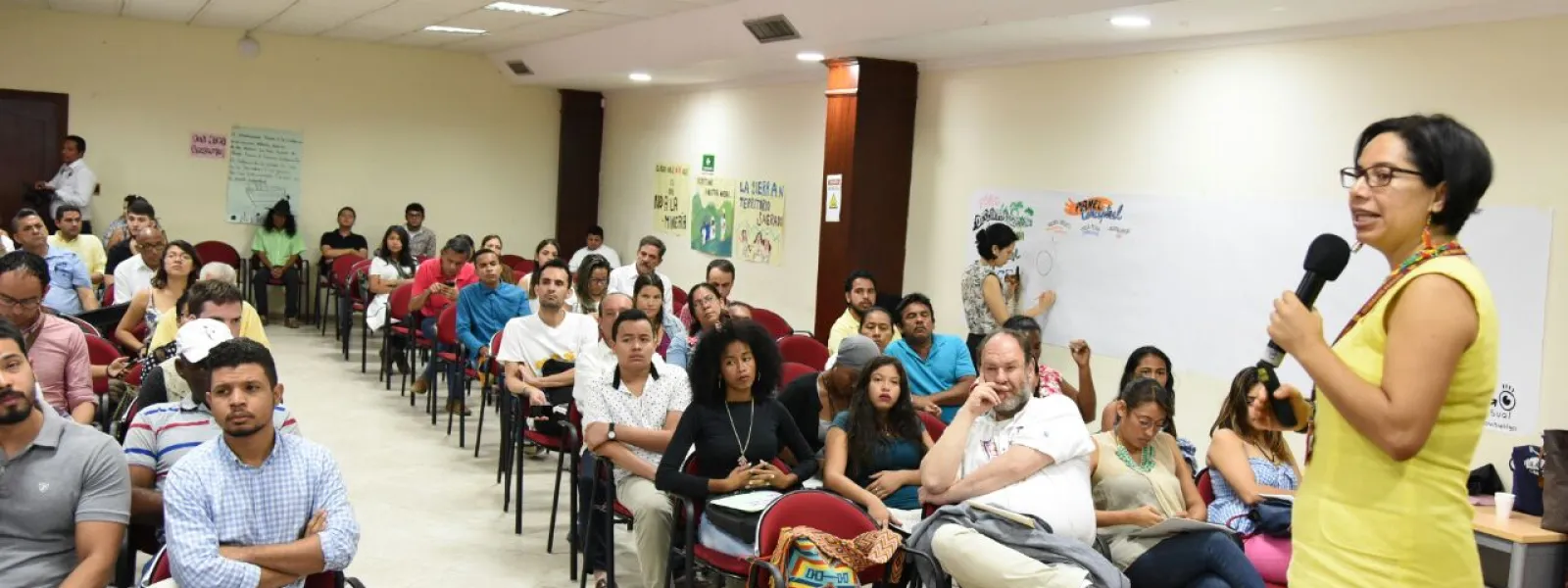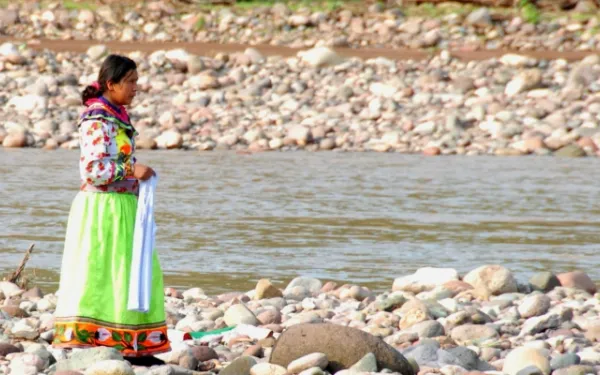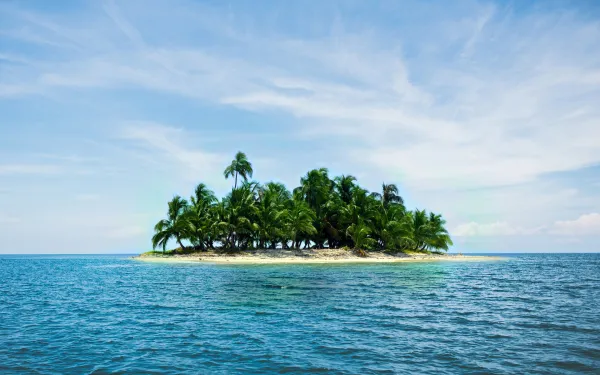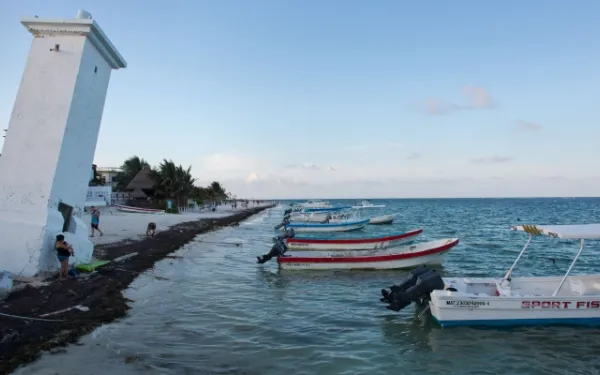
Project
Organizing the Network for Environmental Justice in Colombia
The Network for Environmental Justice in Colombia is an effort to coordinate organizations and legal resources for the protection of human rights and the environment.
The Network was founded in 2010 under the coordination of AIDA and with the help of the Latin American Institute for Alternative Society and Law, the Institute for the Study of Peace and Development, the Inter-Ecclesial Commission for Justice and Peace, and the University of Los Andes, the University of Caldas, and Del Rosario University. The network began with 79 participants and now includes more than 500 people and participating organizations.
The Network’s principal objective is to propose solutions to environmental conflicts in Colombia. It also aims to promote the fair and effective use of international and domestic environmental law, in particular, the right to a clean and healthy environment.
What does the network do?
- Facilitates the exchange of knowledge and information to implement legal strategies in precedent-setting cases. One such project was the Mandé Norte Mine, in which several members of the Network developed a legal strategy, resulting in a judicial decision that established Colombia’s need to perform an independent environmental impact assessment. Most importantly, the decision also mandated that developers obtain the consent of indigenous peoples before moving forward with any projects in their territory.
- Promotes organizational alliances, garners support, and connects legal work in defense of the environment.
- Organizes conversations, forums, and constructive debates on environmental issues.
- Provides access to legal resources including laws, court decisions, articles and legal analysis, and facilitates communication through its website and social media channels.
- Advises law students through the AIDA volunteer program. In doing so, the Network strengthens the capacity for environmental law in Colombia.
Partners:

Women, water and life: the vital connection
As a woman and an environmental defender, I find it necessary to commemorate the role of women in the protection of our natural heritage. I feel a special pull toward making visible the links between environmental defense, courage, and gender. Women are the first victims of environmental deterioration, but they’re also the greatest protagonists in the defense and conservation of nature. Although it may seem like women and the environment are two different topics, there are subtle—but strong—links between the two, particularly when it comes to water. Women have an important relationship with water—they are both sources of life and fundamental to existence. It’s not surprising, then, that women can often be seen leading struggles in defense of water, especially within indigenous and rural populations. Joan Martínez Alier, professor of economics at the Autonomous University of Barcelona and an expert in political ecology, explained to Agencia EFE that often, socio-environmental conflicts involving mining or the privatization of water directly affect the survival of communities and, for that reason, women act in defense of water as they would in defense of their land or their family: bravely and completely. Little is known, however, about the knowledge and experience of women in water management. In many cases, especially in the Global South, the administration of water resources, as well as the elaboration and implementation of related policies, doesn’t take into account gender roles and lacks a differentiated approach. In rural Colombia, for example, women bring water to their homes from rivers or springs, boil it for use in the kitchen, and care for it. Despite their central role, they are not consulted when decisions are made locally or nationally about the water supply. It’s necessary to bring visibility to the role women play in water management, give equal recognition to the interests of men and women, and promote equal access to decision-making spaces. Only in that way can we advance towards greater equality. It’s important to remember that Latin America is one of the most dangerous regions in the world to be an environmental defender, and more dangerous still for women. Many women, who fight silently from their communities or from their leadership roles, have suffered the violence and injustice that comes with defending what is theirs. I must take a moment now to remember and honor Berta Cáceres, the indigenous activist and leader of the Civil Council of Popular and Indigenous Organizations of Honduras (COPINH), who dedicated her life to the defense of the Gualcarque River. Berta was murdered in March 2016, after years of threats stemming from her opposition of the Agua Zarca Dam. She may be gone, but her spirit, and her commitment to justice, is still very much alive. I’d also like to mention my colleagues, courageous friends, and allies who through their struggles are shaping a more just and equitable world. They believe, with all their hearts, that gender justice comes hand-in-hand with environmental justice. In our current reality, equality, more than a starting point, is a goal we must work towards. Concrete actions are needed to counterbalance the discrimination that affects us all. That’s why it is fundamental to incorporate the gender approach in any plan, program, project or mechanism of public administration. As the World Bank mentions in a 2002 report, the way to ensure both men and women benefit more equitably from policies is to make their needs and experiences an integral part of them. Life depends on women, as it does on water. That’s why we proudly act as stubborn defenders of not just water, but of all natural resources and of those who depend on them. Although not always visible, our struggle is as present as the water that travels in so many ways across our planet. It’s important that we come together in support of one another—in our victories and our defeats. May we continue sharing our fears and our fights and, above all else, may we never abandon the defense of our territory—because it defines us and to it we owe everything. I’ve always thought that water has the face of a woman. Every day now, I see it more clearly.
Read more
Inter-American Court establishes historic precedent for the protection of human rights in the Americas
In response to a consultation made by Colombia, the Court recognized the right to a healthy environment as fundamental to human existence. They also recognized the impact of climate change on human rights. At AIDA we celebrate this decision, which strengthens the obligations of States to protect the natural environment and those who depend on it. The Inter-American Court of Human Rights established a historic precedent for the protection of the people of the Americas in its response (Advisory Opinion) to Colombia’s consultation on the scope of States’ obligations to protect human rights from damages to the marine environment in the Greater Caribbean region. “We celebrate this decision, which will undoubtedly serve as a global example and a fundamental legal tool for those of us who work for environmental and climate justice,” said Astrid Puentes Riaño, co-executive director of AIDA. “It will also serve as an impetus for the States of the region to protect key ecosystems, such as the Guarani Aquifer, the Andes, the Amazon, the Pacific and the Greater Caribbean region.” The Court concluded that a healthy environment is an autonomous right, “fundamental to the existence of humanity,” in the first time they have developed the subject. It also recognized the impact of climate change on the effective enjoyment of human rights, particularly for the most vulnerable populations, such as indigenous peoples, children, and those living in extreme poverty. With this decision, taken in November and made public yesterday, the Court welcomed and enhanced similar recognition by organisms of the United Nations and regional courts. The Court established that the obligation of States to respect the rights to life and personal integrity, in relation to environmental protection, implies that they must: Avoid causing “significant” environmental damage in and outside their territory, for which they must regulate, supervise and monitor activities that could cause harm. Assure, among other things, the realization of effective and independent environmental impact studies, as well as mitigation and contingency plans for potential damages. Cooperate with other States and provide them with information regarding risks to their natural environment. Apply the precautionary principle to protect the rights to life and personal integrity due to serious and irrevocable environmental degradation, even when scientific uncertainty exists. Guarantee the rights to public participation, access to information related to potential environmental harms, and access to justice in decision-making that could affect the environment. In January of 2017, AIDA presented observations on Colombia’s consultation and, in March of that year, participated in a hearing before the Inter-American Court. We argued that the implementation of large infrastructure projects in the Greater Caribbean and other areas could affect the environment to such a point that they could put at risk the life and personal integrity, among other human rights, of the people living there. “The Court has taken an important step towards the protection of the oceans and other key ecosystems by incorporating international commitments to environmental protection as part of the obligation of States to protect human rights,” said Gladys Martínez, senior attorney of AIDA’s Marine Program. Consult and download a summary of the Court decision here. Press contact: Victor Quintanilla,+521 5570522107, [email protected]
Read more
Organizations alert authorities of threats to Puerto Morelos Reef
Mexico’s Puerto Morelos Reef National Park, a national protected area and Wetland of International Importance, is at risk due to massive and unsustainable tourism activities. Civil society organizations solicited a visit of international experts from the Ramsar Convention to evaluate the risks facing the site. A coalition of local, national and international organizations presented an urgent alert before the Ramsar Convention, an intergovernmental treaty on wetlands, warning of the threats facing Mexico’s Puerto Morelos Reef National Park due to massive and unsustainable tourism. The Interamerican Association for Environmental Defense (AIDA)—with the support of the Mexican Center for Environmental Law (CEMDA), Voces Unidas for Puerto Morelos, the Puerto Morelos House of Culture, Flora and Fauna of Mexico, and the Center for Innovation and Investigation for Sustainable Development— solicited a visit of international experts to evaluate the risks. "Because some of the area’s tourism projects were not subjected to a rigorous environmental impact assessment, they have transformed the coastal territory, degrading and contaminating ecosystems, particularly coral reefs and mangroves," explained Sandra Moguel, regional director of CEMDA’s Southeast office. The National Park was created as a natural protected area in 1998 and was registered in 2004 as a Wetland of International Importance under the Ramsar Convention. It is a unique site due to its high biodiversity—its coral reefs provide habitat for fish, sharks, pink snails and sea turtles, while its mangroves harbor crocodiles and herons. In addition, like other wetlands, it helps prevent coastal erosion and provides breeding and feeding grounds for the area’s fish. "The site’s ecological and scenic beauty attracts tourism projects which, because they’re not properly evaluated, promote the irrational use of natural resources," said Camilo Thompson, AIDA marine attorney. "A Ramsar mission is urgently needed to evaluate the damages, propose compensation, issue recommendations on the growth of tourism and real estate, and identify alternatives to ensure the rational use of the park’s ecosystems." The Puerto Morelos Reef forms part of the Mesoamerican Reef System, considered the second largest barrier reef in the world. "Any activity carried out in the reef requires a strategic environmental assessment that considers the cumulative and synergistic impacts on the coastal wetlands, sea grasses and reefs of Puerto Morelos," Thompson added. "The Mexican State must apply the precautionary principal and ecosystem approach to confront the threats to the biodiversity of this unique site." Download the alert presented before the Ramsar Convention (in Spanish). Press Contacts: Camilo Thompson, AIDA Attorney, +521 9671302346, [email protected] Ricardo Ruiz, CEMDA, + 55 5211 2457, [email protected]
Read more